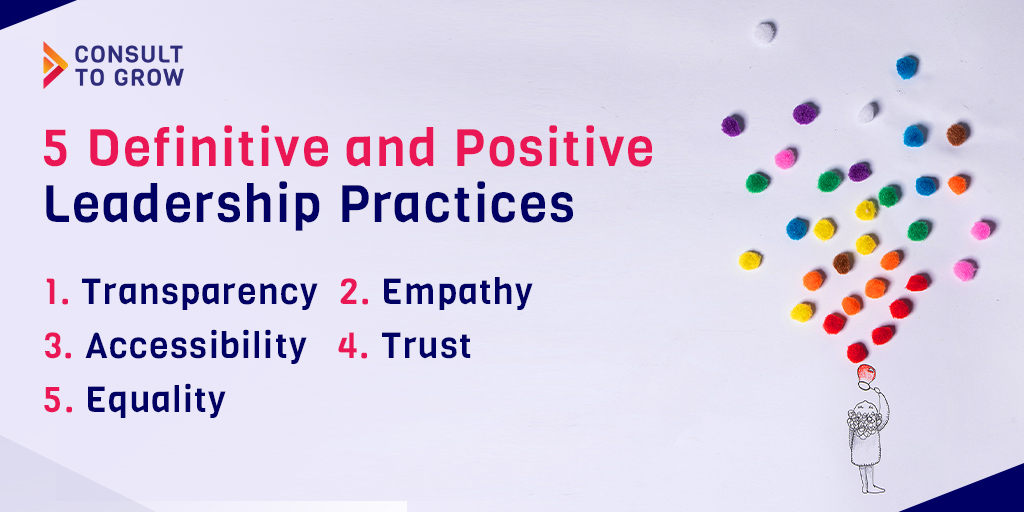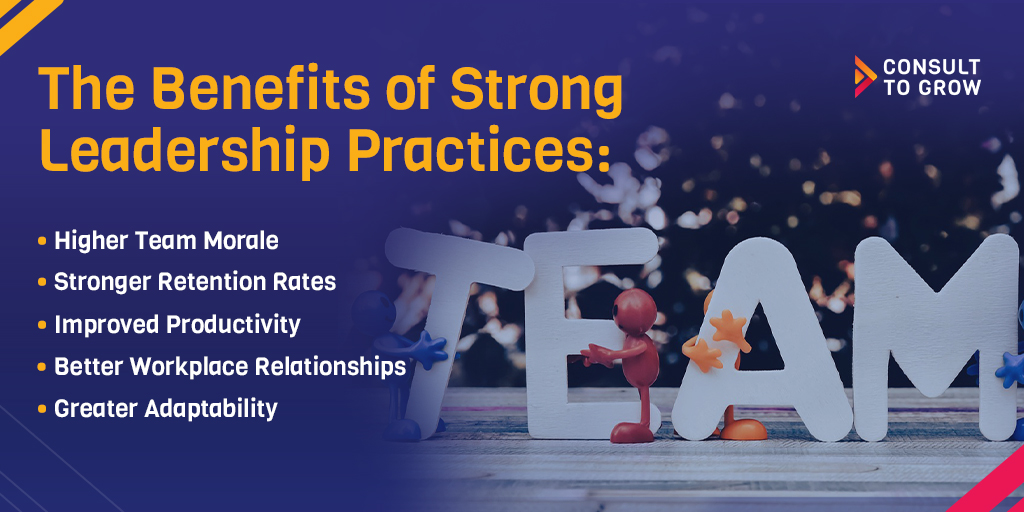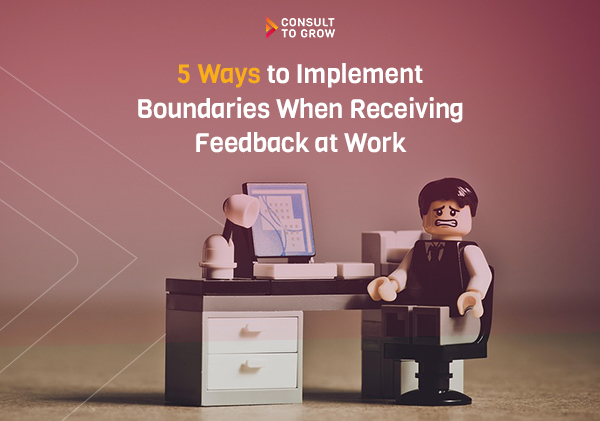
Becoming a leader requires a change in perspective that comes about through personal reflection. As a new-in-position leader, who do you want to be? Who do you need to be? Balancing the requirements of your role with your values requires thoughtful and intentional personal development. Being clear internally translates to confidence in front of your team, and that confidence will earn trust. In other words, you have to see yourself as a leader—know yourself as a leader—before your team will accept you as a leader.
There’s more to it than self-acceptance. Leadership is about steering your team through smooth or choppy waters. It requires mutual trust that the job can and will be done. In other words, you can be a good leader or you can be a bad leader. Again, you have to define this for yourself.
5 Definitive and Positive Leadership Practices
No one sets out to define themself as a poor leader. But the pitfalls are many, and it’s likely they’ve been modeled for you by past bosses. Choosing to be a positive leader requires intention and forethought. In order to get your ducks in a row, you need to reflect on past leadership you’ve experienced. Consider the positives as well as the negatives. Who will you model yourself after, if anyone? Regardless of who you choose, here are five definitive positive leadership practices to get you started:

1. Transparency
A strong leader operates with honesty and openness. This means sharing relevant information with your team, keeping them informed of changes, and being upfront about challenges. When employees feel informed, they feel included—and included employees are more engaged and motivated. Transparency also builds credibility, as it shows you respect your team enough to communicate honestly with them.
2. Empathy
Empathy is often cited as the most important leadership skill. A leader who understands their team members as whole people—who exist outside of work—creates a culture of trust and loyalty. This means practicing active listening, acknowledging personal and professional struggles, and offering support when needed. When employees feel valued beyond their output, they perform better and remain more committed to the team’s success. According to Forbes, empathy in leadership directly correlates with employee satisfaction and performance.
3. Accessibility
Leaders who isolate themselves create distance between themselves and their teams, leading to a breakdown in communication and trust. Making yourself accessible—both physically and emotionally—fosters a culture where employees feel comfortable voicing concerns, asking questions, or seeking guidance. Schedule regular one-on-one meetings, and ensure your team knows they can request a conversation without fear of retribution. Your availability signals that you care and are invested in their success.
4. Trust
Trust is the foundation of effective leadership. As a leader, your job is to equip your team with the skills and knowledge they need to perform their roles effectively. However, it’s equally important to trust them to do their jobs without excessive oversight. If you find yourself hovering, consider whether you have failed to provide proper training and boundaries—or whether you are simply micromanaging. Micromanagement erodes trust because it signals that you don’t believe in your team’s abilities. A leader who trusts their employees fosters a work environment where accountability and autonomy thrive.
5. Equality
Every business has that one team member who seems to get away with anything. Allowing special treatment breeds resentment and undermines your authority. If your employees perceive favoritism, it damages morale and teamwork. Instead, model fairness by holding everyone—including yourself—to the same standards. If you’ve ever felt the frustration of watching someone take extra breaks, chat excessively with the boss, or slack off while others work hard, you know the damage favoritism causes. Set clear expectations, enforce rules consistently, and show your team that you are committed to fairness and integrity.

The Benefits of Strong Leadership Practices
In summary, embracing these five leadership practices doesn’t just improve the work environment—it creates tangible benefits for both leaders and their teams. Here’s what you can expect when you lead with transparency, empathy, accessibility, trust, and equality:
- Higher Team Morale: Employees who feel valued and heard are more engaged and motivated to perform at their best.
- Stronger Retention Rates: A positive, supportive workplace reduces turnover, saving time and resources spent on hiring and training new employees.
- Improved Productivity: Trusting employees to do their jobs without micromanagement allows them to work efficiently and confidently.
- Better Workplace Relationships: Open communication and fairness foster respect and cooperation among team members.
- Greater Adaptability: When employees feel secure and empowered, they are more likely to embrace change and take initiative.
The Path to Great Leadership
Leadership is not about exerting power—it’s about fostering growth, both in yourself and in your team. It’s about influence, guidance, and trust. By prioritizing transparency, empathy, accessibility, trust, and equality, you set the stage for a strong, supportive work culture by creating an environment that fosters loyalty, productivity, and personal growth. As you refine your leadership style, remember that self-awareness and continuous learning are key. Leadership is a journey, not a destination. Define the leader you want to be, take intentional steps toward that vision, and watch as your team flourishes under your guidance. Remember, the best leaders don’t just manage—they inspire. What kind of leader will you be?




